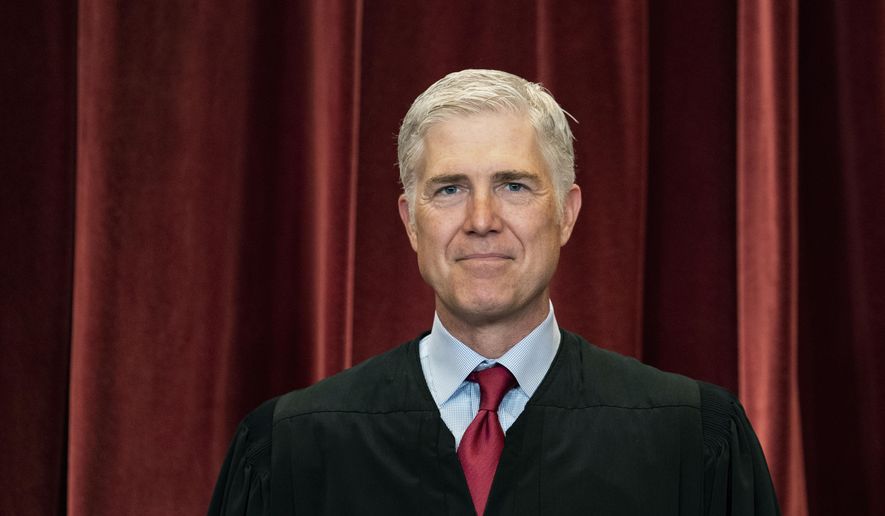Supreme Court Justice Neil M. Gorsuch issued a searing denunciation of the way the country handled the coronavirus pandemic in a statement Thursday warning that Americans were all too eager to give up their freedoms on the say-so of a few chief executives.
He chided legislatures and judges for vacating the field and leaving the president and governors unobstructed as they issued decrees.
Those decrees cut deep into Americans’ most fundamental freedoms, canceling schools, shuttering shops and closing churches, even as casinos and other “favored businesses” were allowed to roll on. Justice Gorsuch also said it all took place while dissenting voices were silenced by social media companies responding to government pressure.
It all made for a worrying study of democracy.
“One lesson might be this: Fear and the desire for safety are powerful forces. They can lead to a clamor for action — almost any action — as long as someone does something to address a perceived threat,” Justice Gorsuch wrote. “We may even cheer on those who ask us to disregard our normal lawmaking processes and forfeit our personal freedoms.”
Justice Gorsuch’s statement came as part of a complicated case involving whether a state could intervene to defend federal executive action when the new administration no longer wanted to.
A lower court had ruled against Arizona’s attempt to do so, but the high court on Thursday erased that ruling, saying the entire issue is moot now that the pandemic emergency lapsed last week.
Justice Gorsuch said he didn’t disagree with that decision.
But he said the end of the pandemic emergency should spur a reflection about what just happened.
In the case before the justices, he said the high court handled it wrongly from the beginning, allowing litigants to “manipulate” the court’s docket to force the Title 42 pandemic emergency power to be used as a broader immigration tool.
More broadly, he said, Americans need to take stock of how laws are made.
“Since March 2020, we may have experienced the greatest intrusions on civil liberties in the peacetime history of this country,” he said.
He said Congress and state legislatures should take a new look at how much emergency authority they delegated to chief executives.
And he said judges need to be willing to get involved, too.
Citing Aristotle’s writings, he said: “The concentration of power in the hands of so few may be efficient and sometimes popular. But it does not tend toward sound government. However wise one person or his advisors may be, that is no substitute for the wisdom of the whole of the American people that can be tapped in the legislative process.”
For more information, visit The Washington Times COVID-19 resource page.
• Stephen Dinan can be reached at sdinan@washingtontimes.com.




Please read our comment policy before commenting.